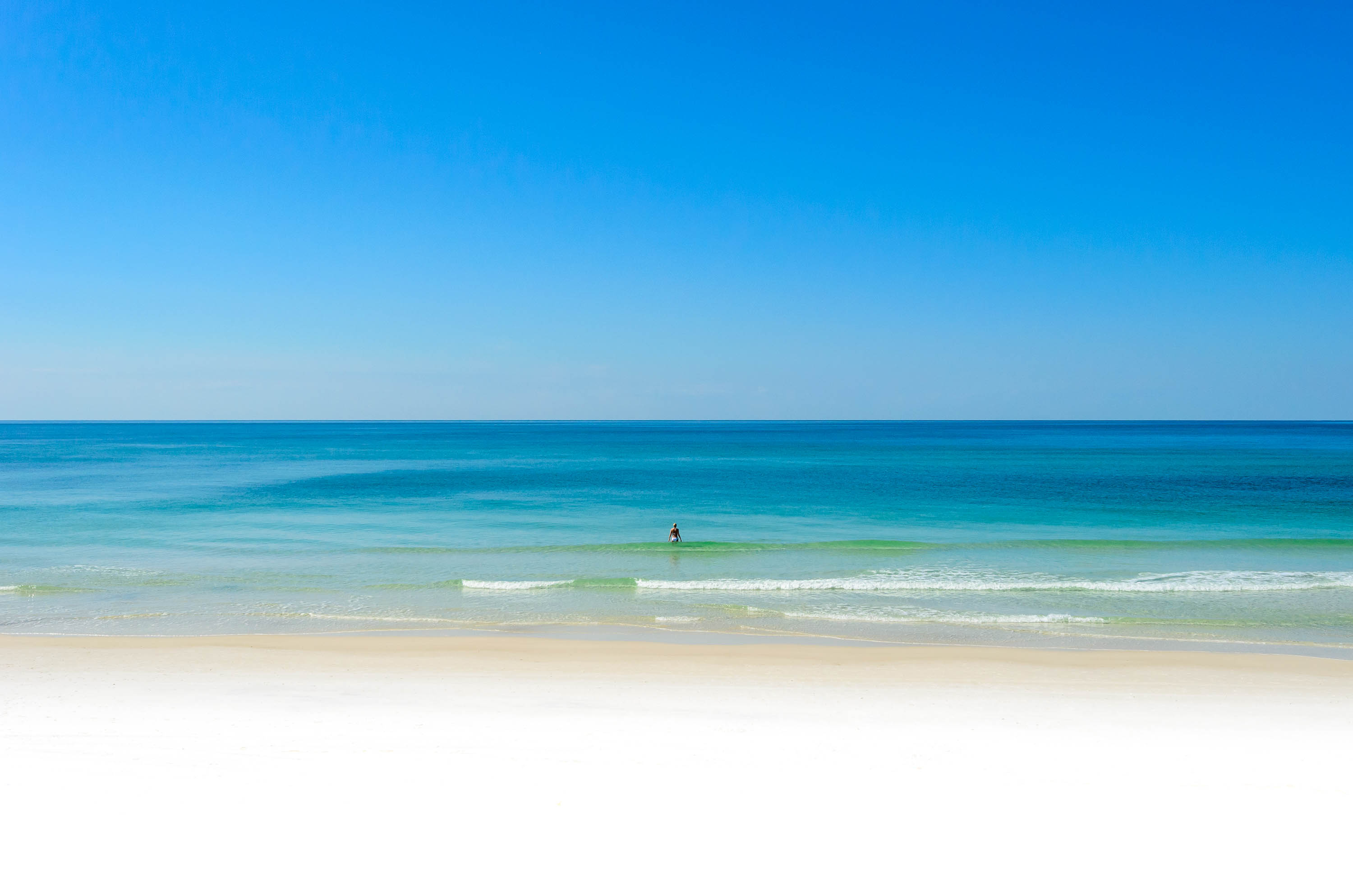Did anyone read this article? http://www.time.com/time/printout/0,8816,1821648,00.html It was in the July 21, 2008 edition.
Is Florida the Sunset State?
By Michael Grunwald/Miami
Water Crisis Mortgage Fraud Political Dysfunction Algae Polluted Beaches Declining Crops Failing Public Schools Foreclosures
Greetings from Florida, where the winters are great!
Otherwise, there's trouble in paradise. We're facing our worst real estate meltdown since the Depression. We've got a water crisis, insurance crisis, environmental crisis and budget crisis to go with our housing crisis. We're first in the nation in mortgage fraud, second in foreclosures, last in high school graduation rates. Our consumer confidence just hit an all-time low, and our icons are in trouble--the citrus industry, battered by freezes and diseases; the Florida panther, displaced by highways and driveways; the space shuttle, approaching its final countdown. New research suggests that the Everglades is collapsing, that our barrier beaches could be under water within decades, that a major hurricane could cost us $150 billion.
We do wish you were here, because attracting outsiders has always been our primary economic engine, and our engine is sputtering. Population growth is at a 30-year low. School enrollment is declining. Retirees are drifting to the Southwest and the Carolinas, while would-be Floridians who bought preconstruction condos in more optimistic times are scrambling--and often suing--to break contracts. This is our dotcom bust, except worse, because our local governments are utterly dependent on construction for tax revenues, so they're slashing school and public-transportation budgets that were already among the nation's stingiest. "This may be our tipping point," says former Senator Bob Graham.
Florida was once a swampy rural backwater, the poorest and emptiest state in the South. But in the 20th century, air-conditioning, bug spray and the miracle of water control helped transform it into a migration destination for the restless masses of Brooklyn and Cleveland, Havana and Port-au-Prince. Florida developed its own ventricle at the heart of the American Dream--not only as an affordable playground and comfortable retirement home with no income tax but also as a state of escape and opportunity, a Magic Kingdom for tourists, a Fountain of Youth for seniors, a Cape Canaveral for Northerners looking to launch their second acts. Even the soggy Everglades, once considered a God-forsaken hellhole, became a national treasure.
But now the financial and environmental bill for a century of runaway growth and exploitation is coming due. The housing bust has exposed a human pyramid scheme--an economy that relied on a thousand newcomers a day, too many of them construction workers, mortgage bankers, real estate agents and others whose livelihoods depended on importing a thousand more newcomers the next day. And the elaborate water-management scheme that made southern Florida habitable has been stretched beyond capacity, yo-yoing between brutal droughts and floods, converting the Everglades into a tinderbox and a sewer, ravaging the beaches, bays, lakes and reefs that made the region so alluring in the first place. "The dream is fading," says University of South Florida historian Gary Mormino. "People think Florida is too crowded, too spoiled, too expensive, too crazy, too many immigrants--name your malady."...
He means a sustainable Florida. He's been doing his part environmentally, pushing a sweeping energy bill through the fractious legislature, fulfilling his pledge to be the "Everglades governor." His greatest challenge, though, is economic sustainability, attracting high-wage industries that don't depend on perpetual growth. His predecessor, Jeb Bush, lured a few biotech firms, with the help of lavish subsidies, and Crist has targeted green-tech sectors like solar power as well as global trade. But not even corporate titans who enjoy Florida vacations seem eager to relocate to a high-priced state with a service-economy workforce and troubled schools. "The decisions about relocating high-paying businesses are made by people who value education, and Florida isn't ready for the modern economy," says Graham, the former Senator. New corporate subsides will be a tough fiscal sell. "The politicians have told us: Not if it costs money," says Space Coast economic-development director Lynda Weatherman. The shuttle will be canceled in 2010, and her region may lose 6,000 jobs. "Six thousand one, if I can't figure out how to attract new ones," she says.
Is Florida the Sunset State?
By Michael Grunwald/Miami
Water Crisis Mortgage Fraud Political Dysfunction Algae Polluted Beaches Declining Crops Failing Public Schools Foreclosures
Greetings from Florida, where the winters are great!
Otherwise, there's trouble in paradise. We're facing our worst real estate meltdown since the Depression. We've got a water crisis, insurance crisis, environmental crisis and budget crisis to go with our housing crisis. We're first in the nation in mortgage fraud, second in foreclosures, last in high school graduation rates. Our consumer confidence just hit an all-time low, and our icons are in trouble--the citrus industry, battered by freezes and diseases; the Florida panther, displaced by highways and driveways; the space shuttle, approaching its final countdown. New research suggests that the Everglades is collapsing, that our barrier beaches could be under water within decades, that a major hurricane could cost us $150 billion.
We do wish you were here, because attracting outsiders has always been our primary economic engine, and our engine is sputtering. Population growth is at a 30-year low. School enrollment is declining. Retirees are drifting to the Southwest and the Carolinas, while would-be Floridians who bought preconstruction condos in more optimistic times are scrambling--and often suing--to break contracts. This is our dotcom bust, except worse, because our local governments are utterly dependent on construction for tax revenues, so they're slashing school and public-transportation budgets that were already among the nation's stingiest. "This may be our tipping point," says former Senator Bob Graham.
Florida was once a swampy rural backwater, the poorest and emptiest state in the South. But in the 20th century, air-conditioning, bug spray and the miracle of water control helped transform it into a migration destination for the restless masses of Brooklyn and Cleveland, Havana and Port-au-Prince. Florida developed its own ventricle at the heart of the American Dream--not only as an affordable playground and comfortable retirement home with no income tax but also as a state of escape and opportunity, a Magic Kingdom for tourists, a Fountain of Youth for seniors, a Cape Canaveral for Northerners looking to launch their second acts. Even the soggy Everglades, once considered a God-forsaken hellhole, became a national treasure.
But now the financial and environmental bill for a century of runaway growth and exploitation is coming due. The housing bust has exposed a human pyramid scheme--an economy that relied on a thousand newcomers a day, too many of them construction workers, mortgage bankers, real estate agents and others whose livelihoods depended on importing a thousand more newcomers the next day. And the elaborate water-management scheme that made southern Florida habitable has been stretched beyond capacity, yo-yoing between brutal droughts and floods, converting the Everglades into a tinderbox and a sewer, ravaging the beaches, bays, lakes and reefs that made the region so alluring in the first place. "The dream is fading," says University of South Florida historian Gary Mormino. "People think Florida is too crowded, too spoiled, too expensive, too crazy, too many immigrants--name your malady."...
He means a sustainable Florida. He's been doing his part environmentally, pushing a sweeping energy bill through the fractious legislature, fulfilling his pledge to be the "Everglades governor." His greatest challenge, though, is economic sustainability, attracting high-wage industries that don't depend on perpetual growth. His predecessor, Jeb Bush, lured a few biotech firms, with the help of lavish subsidies, and Crist has targeted green-tech sectors like solar power as well as global trade. But not even corporate titans who enjoy Florida vacations seem eager to relocate to a high-priced state with a service-economy workforce and troubled schools. "The decisions about relocating high-paying businesses are made by people who value education, and Florida isn't ready for the modern economy," says Graham, the former Senator. New corporate subsides will be a tough fiscal sell. "The politicians have told us: Not if it costs money," says Space Coast economic-development director Lynda Weatherman. The shuttle will be canceled in 2010, and her region may lose 6,000 jobs. "Six thousand one, if I can't figure out how to attract new ones," she says.

 and I agree with you! The USA and Florida will come back. The sad part is that so many people's lives are going into the ground b/c of it. We just had a call today from some sub-contractors (local) who were just layed off b/c the builder could get cheaper labor from out of state. :angry: So many locals are hurting and losing their shirt.
and I agree with you! The USA and Florida will come back. The sad part is that so many people's lives are going into the ground b/c of it. We just had a call today from some sub-contractors (local) who were just layed off b/c the builder could get cheaper labor from out of state. :angry: So many locals are hurting and losing their shirt. 












